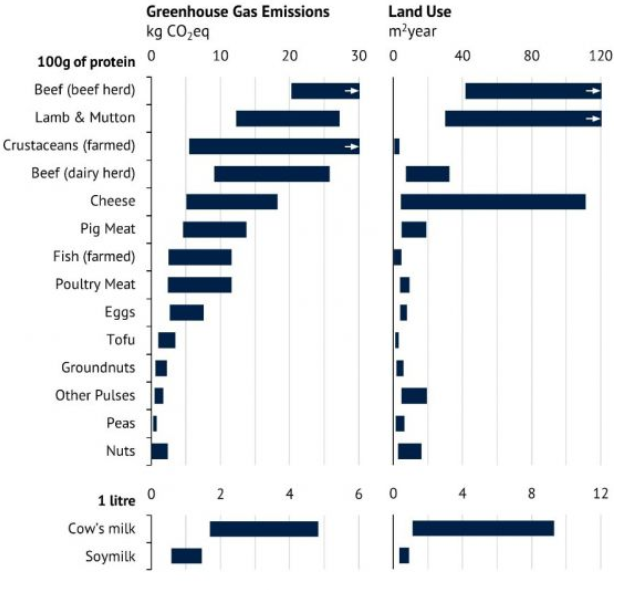Cutting out meat and dairy greatly helps the planet, says new research
Avoiding meat and dairy is one of the best ways to reduce your environmental impact, according to new analysis.

Avoiding meat and dairy is one of the best ways to reduce your environmental impact, according to new analysis.
Researchers from the University of Oxford analysed environmental data taken from 38,700 farms and its supply chain around the world to compile one of the most comprehensive databases on the issue.
They found there is considerable variation on the environmental impact between the methods used between farms, with some producers of beef creating up to 50 times more carbon dioxide than others.
High impact beef producers could create 105kg of carbon dioxide equivalent and use 370 metre square of land per 100 grams of protein.
This is in stark contrast to the very low impact of plant-based proteins, such as beans and peas which create only 0.3kg of carbon dioxide and use 1m2 of land per 100 grams.
The data similarly applies to dairy where obtaining one litre of cow’s milk can create over three times the emissions of soya milk, and much more land depending on the methods used.
The evidence shows the scope open to producers to reduce emissions through embracing more sustainable practices. These include closer monitoring of environmental impacts and adopting more efficient technologies.
The researchers also suggest better communication to highlight to consumers the variation in environmental impact. This would take the form of environmental labels and financial incentives to support more sustainable consumption.
“Two things that look the same in the shops can have extremely different impacts on the planet. We currently don’t know this when we make choices about what to eat. Further, this variability isn’t fully reflected in strategies and policy aimed at reducing the impacts of farmers,” said Joseph Poore from Oxford’s Department of Zoology and the School of Geography and Environment.
Despite the potential for improvement, the greatest environmental benefits were in adopting a plant-based diet where depending on where you live it could reduce emissions by 73 percent. It would also requires an astonishing 3.1 billion hectares less farmland.
“This would take pressure off the world’s tropical forests and release land back to nature”, concluded Poore.
Source: University of Oxford







